Swan Lake, Op. 20 (1877), Act IV, No. 29 Scène finale
When we invaded the Ghetto for the first time, the Jews and the...



When we invaded the Ghetto for the first time, the Jews and the Polish bandits succeeded in repelling the participating units… The main Jewish battle group, mixed with Polish bandits, had already retired during the first and second day to the so-called Muranowski Square. There, it was reinforced by a considerable number of Polish bandits. Its plan was to hold the Ghetto by every means in order to prevent us from invading it.
Jürgen Stroop’s report of the Warsaw Ghetto Uprising, 1943
"Ideologies of hatred have never required coherent definitions of the hated… “I decide..."
- Ta-Nehisi Coates, This Town Needs a Better Class of Racist
Sheherazade, Op. 35, III. The Young Prince and Princess (1888)...
Sheherazade, Op. 35, III. The Young Prince and Princess (1888) Nikolai Rimsky-Korsakov
Leopold Stokowski & the London Symphony Orchestra
I'm really glad over the fact that your personal is a fandom blog.
I’m sorry you had to see all of that
Transmission electron micrograph of Ebola virus, 1976. CDC...
Audrey Hepburn (May 4, 1929 – January 20, 1993) I am proud to...


Audrey Hepburn (May 4, 1929 – January 20, 1993)
I am proud to have been in a business that gives pleasure, creates beauty, and awakens our conscience, arouses compassion, and perhaps most importantly, gives millions a respite from our so violent world.
Empress Theodora (1887), Jean-Joseph Benjamin-Constant


Empress Theodora (1887), Jean-Joseph Benjamin-Constant
The Madonna of the Roses (1903) & Pieta (1876), William...


The Madonna of the Roses (1903) &Pieta (1876), William Adolphe-Bouguereau
Jeanne d’Arc [and the archangel Michael] (1876), Eugene...

Jeanne d’Arc [and the archangel Michael] (1876), Eugene Thirion
May 17, 1954: The Supreme Court unanimously rules public school...



May 17, 1954: The Supreme Court unanimously rules public school segregation unconstitutional in Brown v. Board of Education.
Sixty years ago today, the Supreme Court of the United States ruled in a landmark case that the segregation of public schools was unconstitutional under the Equal Protection Clause of the Fourteenth Amendment. Newly-appointed Chief Justice Earl Warren wrote in the opinion:
Segregation of white and colored children in public schools has a detrimental effect upon the colored children. The impact is greater when it has the sanction of the law; for the policy of separating the races is usually interpreted as denoting the inferiority of the negro group…. We conclude that, in the field of public education, the doctrine of “separate but equal” has no place. Separate educational facilities are inherently unequal.
The doctrine of “separate but equal” as justification for racial segregation emerged in the United States in the 1890s and was granted constitutional legitimacy in Plessy v. Ferguson (1896), in which the court upheld a Louisiana law that provided for separate railway cars for blacks and whites. This decision laid the foundation for the dismantlement of Reconstruction Era reform, and for the enactment of Jim Crow laws. While de jure segregation was not as all-encompassing in the North, many former Union states also maintained racially segregated schools: it was the policy of the Board of Education of Topeka, Kansas that Oliver L. Brown and twelve other plaintiffs challenged in Brown v. Board. At the time, the Board’s policy permitted Topeka’s school districts to segregate their elementary and middle schools. Throughout the 1930s, 40s, and 50s, the NAACP undertook a campaign to challenge “separate but equal” under legal premises. Under the direction of the NAACP, each of the plaintiffs enrolled their children in local all-white schools and, when the schools refused their children enrollment, filed a class action suit in the District Court of Kansas, which subsequently ruled in favor of the Board. This decision took place in 1951.
The case that was heard by the Supreme Court in 1953 comprised six separate NAACP-backed cases, including Brown v. Board. After much deliberation, the Warren Court decreed in a unanimous decision that the segregation of public schools violated the Equal Protection Clause of the Fourteenth Amendment. The justices were divided on how Brown could be enforced and on the issue of judicial activism versus restraint, but Chief Justice Warren pushed for unanimity to further legitimize the decision and prevent Southern resistance (which persisted regardless). Although Brown was a key decision and the first step toward the end of de jure segregation, the path to desegregation was long and uncertain, and did not encompass solutions to de facto inequalities that had emerged during over half a century of racist policies. Topeka desegregated its elementary schools within two years, but resistance in the South against the court’s decision and against desegregation was inexorable, resulting in incidents such as the Little Rock Crisis and other manifestations of what Virginian politicians dubbed “massive resistance”.
Mrs. Nettie Hunt, sitting on steps of Supreme Court, holding...


Mrs. Nettie Hunt, sitting on steps of Supreme Court, holding newspaper, explaining to her daughter Nikie the meaning of the Supreme Court’s decision banning school segregation, 1954.
La Belle Dame sans Merci [The Beautiful Lady without Mercy]...


La Belle Dame sans Merci [The Beautiful Lady without Mercy] (1926), Frank Cadogan Cowper
And there she lullèd me asleep,
And there I dreamed—Ah! woe betide!—
The latest dream I ever dreamt
On the cold hill side.
I saw pale kings and princes too,
Pale warriors, death-pale were they all;
They cried—‘La Belle Dame sans Merci
Hath thee in thrall!’
John Keats, 1819
Maya Angelou (April 4, 1928 - May 28, 2014) INTERVIEWER James...

Angelou and Amiri Baraka in 1991


Maya Angelou (April 4, 1928 - May 28, 2014)
INTERVIEWER
James Baldwin… said that “when you’re writing you’re trying to find out something you didn’t know.” When you write do you search for something that you didn’t know about yourself or about us?
ANGELOU
Yes. When I’m writing, I am trying to find out who I am, who we are, what we’re capable of, how we feel, how we lose and stand up, and go on from darkness into darkness. I’m trying for that. But I’m also trying for the language. I’m trying to see how it can really sound. I really love language. I love it for what it does for us, how it allows us to explain the pain and the glory, the nuances and the delicacies of our existence. And then it allows us to laugh, allows us to show wit. Real wit is shown in language. We need language.
I admire ur blog. great taste.
Thank you!
[Also, I’m taking this opportunity to say that I haven’t abandoned this blog aaaaand am going to start updating regularly probably the week after next.] [prob.]
Je te veux (I want you) (1897), Erik Satie
Je te veux (I want you) (1897), Erik Satie
Interviewer: But the question is more, how do you get there? Do...
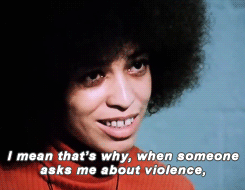

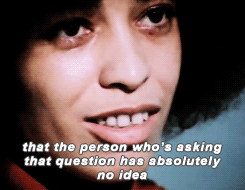
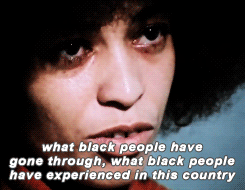
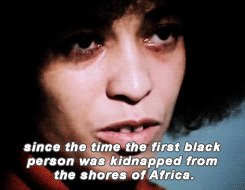

Interviewer: But the question is more, how do you get there? Do you get there by confrontation, violence?
Davis: Oh, is that the question you were asking? Yeah see, that’s another thing. When you talk about a revolution, most people think violence, without realizing that the real content of any revolutionary thrust lies in the principles and the goals that you’re striving for, not in the way you reach them. On the other hand, because of the way this society’s organized, because of the violence that exists on the surface everywhere, you have to expect that there are going to be such explosions. You have to expect things like that as reactions. If you are a black person and live in the black community all your life and walk out on the street everyday seeing white policemen surrounding you… when I was living in Los Angeles, for instance, long before the situation in L.A ever occurred, I was constantly stopped. No, the police didn’t know who I was. But I was a black women and I had a natural and they, I suppose thought I might be “militant.”
And when you live under a situation like that constantly, and then you ask me, you know, whether I approve of violence. I mean, that just doesn’t make any sense at all. Whether I approve of guns.
I grew up in Birmingham, Alabama. Some very, very good friends of mine were killed by bombs, bombs that were planted by racists. I remember, from the time I was very small, I remember the sounds of bombs exploding across the street. Our house shaking. I remember my father having to have guns at his disposal at all times, because of the fact that, at any moment, we might expect to be attacked. The man who was, at that time, in complete control of the city government, his name was Bull Connor, would often get on the radio and make statements like, “Niggers have moved into a white neighborhood. We better expect some bloodshed tonight.” And sure enough, there would be bloodshed. After the four young girls who lived, one of them lived next door to me…I was very good friends with the sister of another one. My sister was very good friends with all three of them. My mother taught one of them in her class. My mother—in fact, when the bombing occurred, one of the mothers of one of the young girls called my mother and said, “Can you take me down to the church to pick up Carol? We heard about the bombing and I don’t have my car.” And they went down and what did they find? They found limbs and heads strewn all over the place. And then, after that, in my neighborhood, all the men organized themselves into an armed patrol. They had to take their guns and patrol our community every night because they did not want that to happen again.
Rink’s first celebration of his birthday in his adopted...

1983
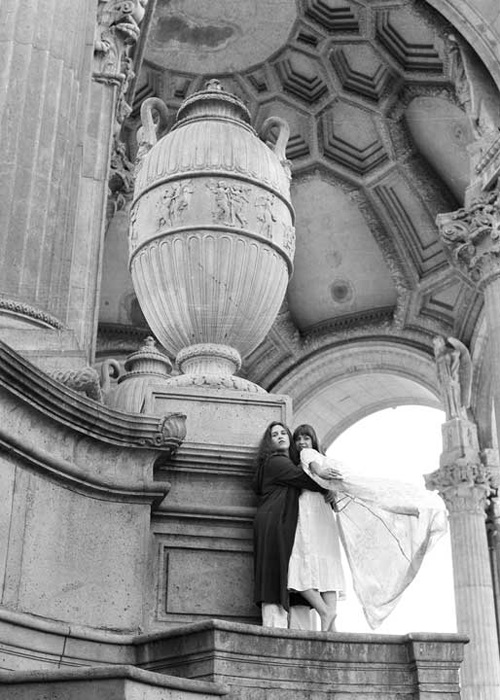
1978
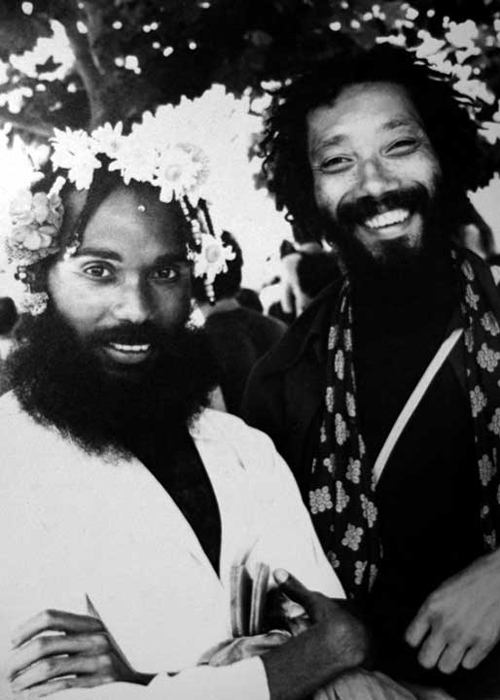
1973
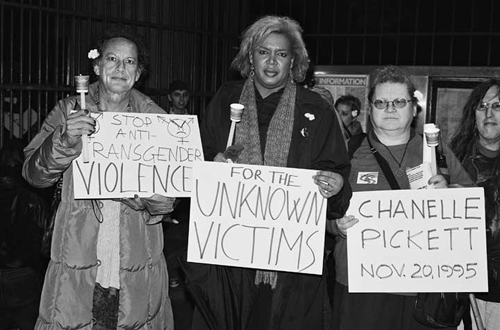
1999
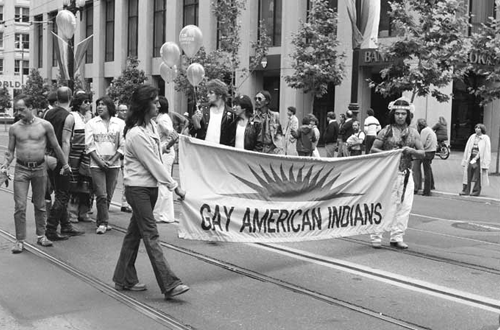
1979
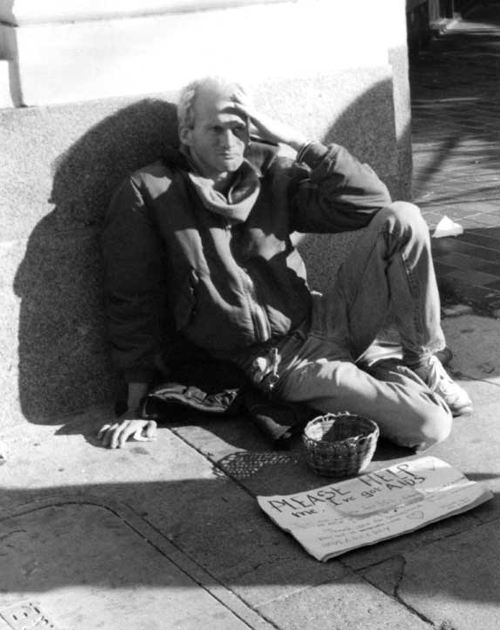
1980
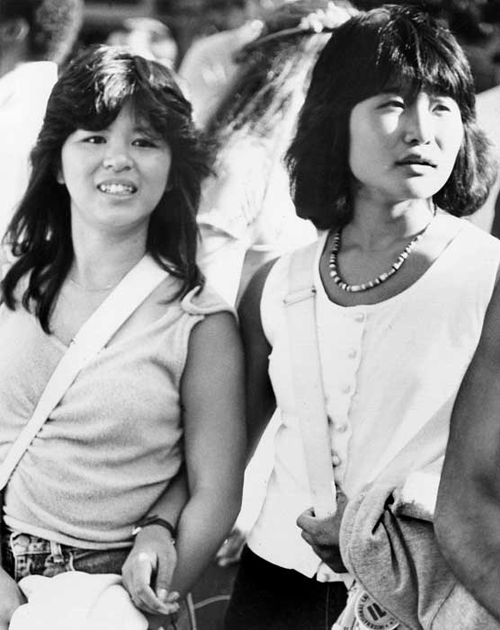
1980
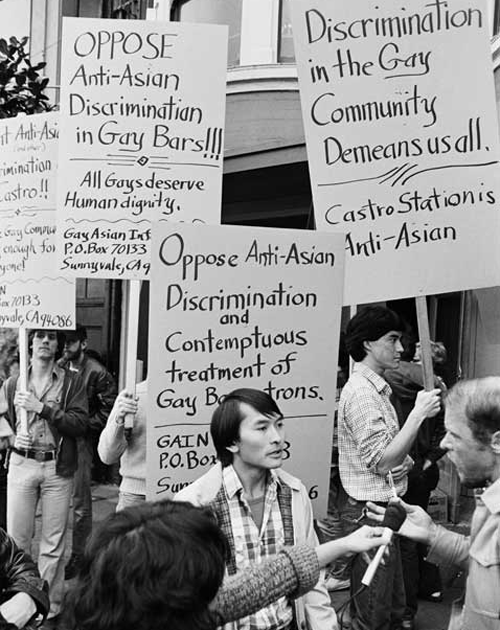
1980
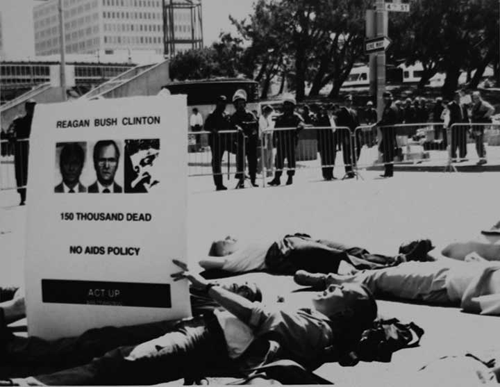
1992
Rink’s first celebration of his birthday in his adopted city of San Francisco took place on June 27th, 1969—and was interrupted by a phone call from a friend in Greenwich Village relating the Stonewall riots in real time. After getting caught up in the then-nascent LGBT political movement, Rink turned his focus to the rich fabric of queer social and political life, chronicling San Francisco’s seismic self-transformation into the queerest city in the world in the space of a decade. The great historical value of Rink’s work is the nearly day by day chronicling of that process of transformation, the gradual and occasionally violent birthing of the San Francisco we know today.
cabbagefuneral: hello friends If you’re a college undergrad who’s interested in writing about...
hello friends
If you’re a college undergrad who’s interested in writing about politics a biweekly magazine run entirely by undergraduates @ my school (JHU) and a couple other schools is accepting submissions, pls visit: baltimorezeitgeist.com & email: baltimorezeitgeist@gmail.com .. write for Us, help us build a network of critical and politically aware Youths 👌 also subscribe.










